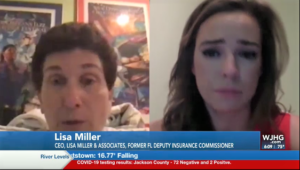A changing face for insurance?

Photo by danielfela/Shutterstock
The debate is growing hotter about whether COVID-19 related impacts, such as business slow-downs and closures, are covered under a business’s general liability or business interruption (BI) insurance policy. Businesses and an increasing number of government officials say it should, while insurance companies say it likely isn’t, unless specified in the policy. Now lawsuits are beginning to fly, including a Tampa sports bar that had to shut down under Florida’s emergency order.
Pennsylvania has now joined New York, New Jersey, Massachusetts and Ohio in proposing legislation that would require carriers to cover COVID-19 losses for companies that had business interruption insurance, regardless of whether a virus exclusion was in the policy. (Some of those states’ emergency orders declare that COVID-19 created physical damage, the usual trigger for a BI claim.) The insurance industry is crying foul, saying such bills violate basic contract law and would prove an unconstitutional taking.
The American Property Casualty Insurance Association now estimates that small business losses from the virus range from $255 billion to $431 billion per month. That’s larger than the roughly $6 billion per month in premium that property insurance carriers collect combined! The association put it quite simply: “Pandemic outbreaks are uninsured because they are uninsurable.”
In fact, the Insurance Services Office in 2006 adopted a mandatory exclusion of viruses in its BI policies that was approved by state regulators. The reason? The SARS virus outbreak from China in 2003.

Lisa Miller on WJHG-TV, Panama City, explaining Business Interruption insurance, April 1, 2020 (Click to watch)
If insurance companies won’t or can’t cover these losses, there’s an alternative approach gaining steam in Congress. What’s being called the “Pandemic Risk Insurance Act” of 2020 (PRIA) would create a federal backstop for pandemic insurance losses with the feds acting as a reinsurer for property and casualty insurers. The concept is similar to the Terrorism Risk Insurance Act (TRIA) enacted in 2002 after the 9/11 attacks. You can read more here.
Property insurance losses are only the half of it. An analysis by California’s state health insurance marketplace estimates the health costs of COVID-19 as high as $250 billion. It also projects that health insurance rates in 2021 might have to go up as high as 40% to compensate.
The industry expects to see a rise in life insurance costs as well, with the anticipated death benefits to be paid as a result of the virus. Almost every line of insurance from business interruption to workers’ compensation to health and life, and commercial insurance in general will be facing rate increase pressure because of virus-related losses and claims.
It’s been part of our media outreach efforts here at LMA to educate reporters, legislators, and the public about the limits of business interruption insurance and the proposed federal PRIA. The phrase “federal backstop” is becoming popular among those watching the business interruption claims trend and this federal funding mechanism may be just what’s needed as well for employers trying to provide health insurance for their employees. As we have always said, all issues, challenges and roads lead to an impact on insurance!
LMA Newsletter of 4-13-20

